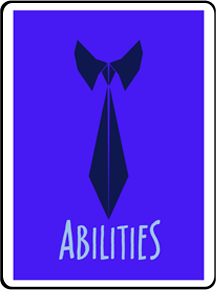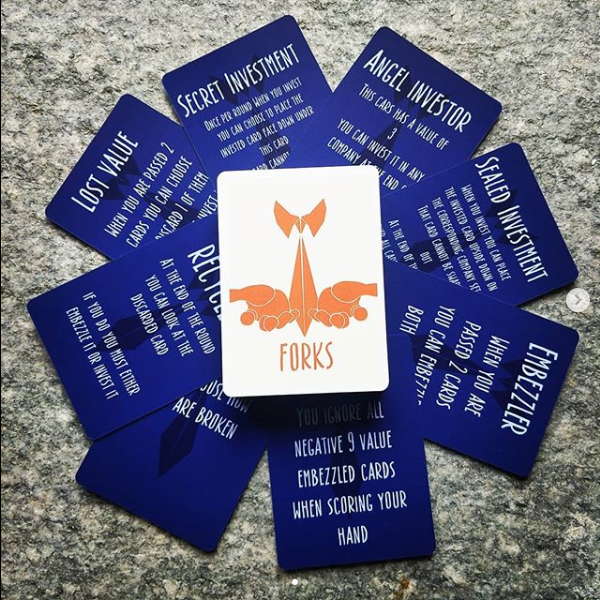It was a playtest session earlier this year which persuaded me to finally include Abilities in the base copy of the game (or at least, the playtesters did). I’d originally come up with variable player powers (abilities) when I was thinking how I could extend this into a fully fledged Kickstarter, and whilst everyone had fun playing with them, I was concerned about them distracting from the simplicity of the game as it stood. It was a needless worry. The Ability cards introduced a rambunctious sense of excitement to proceedings. And in most cases completely eliminating issues with calculating from almost perfect information. A lot of these cards came from suggestions, or players misunderstanding rules, such as investing cards face down. Situations in which I thought, that’s not the right way to play but it would be interesting if you played like that.

The interesting nature of ability cards like these come in their asymmetry. They lead to different ways of playing, and help enable suprises from other players’ actions. To this end it’s important to keep them as straightforward as possible- you don’t want players to be attending to everyone else’s powers, but rather have them aware of them without it being a focus. The other option with different powers is how much of a game changer they are to be. I consider this difference in terms of Agricola and Feast for Odin.
In Agricola your occupations and minor improvements will massively change your strategy. Each occupation should elicit ‘ooohs’ from your opponents as they becom envious of your new power. Every single one has an impact on the game, or isn’t worth playing. They are big influential powers that only one player can use. The space for playing them is highly contested. In the first edition there were some crazy imbalances.
In Feast for Odin, occupations are small things which might alter one or two of your moves. Occasionally they’ll hint at a direction, but on the whole they’re small fry. Sometimes you’ll just play them for the few points they are worth. But they’re all so milquetoast they’re essentially balanced.

For me, if players have random asymmetric powers, I want them to be impactful. I want a game with them to feel different to the game without. To this end, powerful abilities are the way I went. Those abilities which weren’t having an impact have gone. But I also wanted to keep them streamlined- which means that they tend to be small rules tweaks. At first they might look straightforward and small- being able to discard a card instead of investing one seems like something minor. But through playing the game players see exactly how that small tweak can have a great impact.